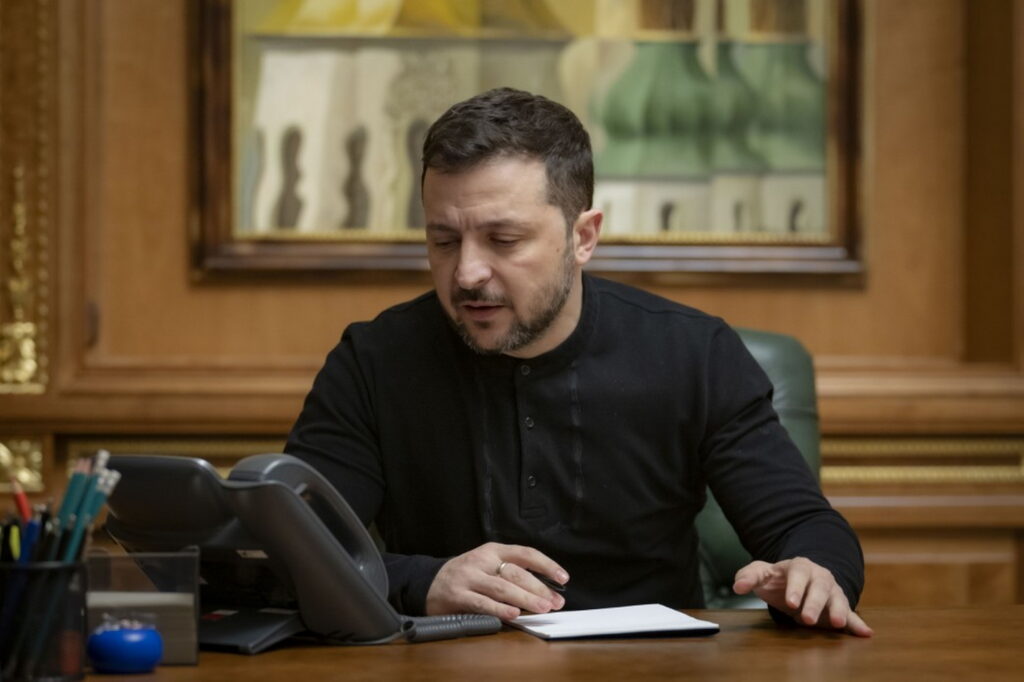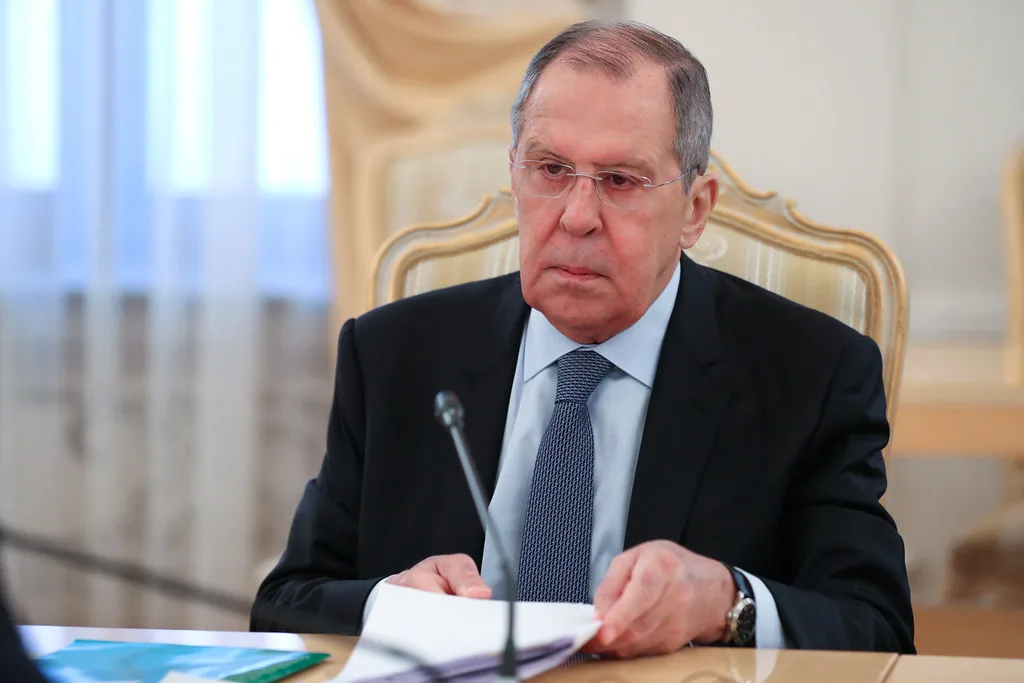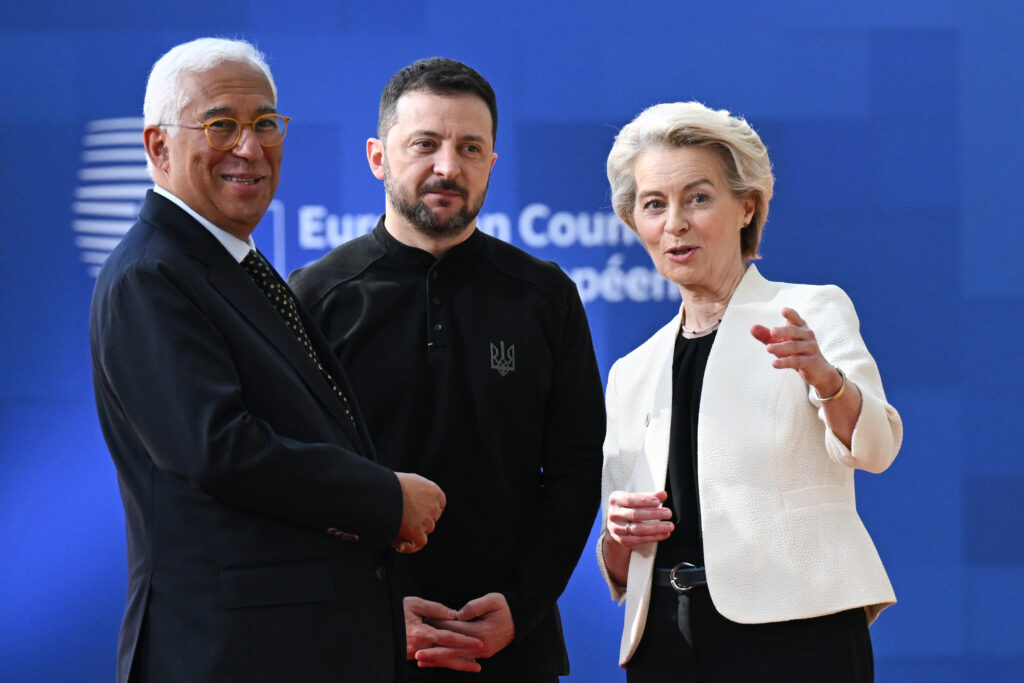Brussels – The negotiations in Saudi Arabia between Russia, Ukraine, and the United States that are supposed to be the first step in a complex negotiating process aimed, in the long run, at ending the bloody war in the former Soviet republic have concluded after three days. However, even now, there are misunderstandings, smears, and differences in interpretation that could jeopardize what little, it seems, the delegations have just agreed upon in Riyadh. More than anything, the object of contention is the possibility of easing the sanctions regime against Moscow.
Washington’s versions
This afternoon (March 25), the White House issued two brief statements outlining the main points on which two separate understandings reportedly agreed, one with the Kyiv and the other with the Moscow delegations. These briefings reflect the core aspects discussed in the Saudi capital, during which the US team met with its Ukrainian (first on Sunday 23, and then again this morning) and Russian (yesterday) counterparts: on the one hand, the definition of technical details related to the 30-day ceasefire concerning infrastructure. On the other, the issue of navigation in the Black Sea.
According to the White House statements, the two belligerent countries have agreed with the United States “to develop measures for the implementation of the agreement,” verbally entered into by Donald Trump with his counterparts Vladimir Putin and Volodymyr Zelensky in two separate phone calls, aimed at “prohibiting attacks against the energy infrastructure of Russia and Ukraine.” The wording brought to a definitive close the “case” that had emerged recently regarding the types of facilities protected by the ceasefire: protect energy facilities, as Moscow wanted, but not ports and railways, as Kyiv demanded.

Regarding the second point, Ukraine and Russia reportedly agreed “to ensure safe navigation, eliminate the use of force, and prevent the use of commercial vessels for military purposes in the Black Sea.” Within this framework, negotiating efforts aim to revive the so-called “Black Sea Initiative,” the agreement dating back to July 2022, mediated by Turkey and the UN that for a year (until Moscow suspended its renewal) allowed Ukrainian grain to reach the rest of the world through the Bosporus and Dardanelles straits and, in parallel, exempt Russian fertilizers from Western sanctions.
Kyiv and Moscow already at odds
However, the first issues are already emerging, starting with the timing and modalities for starting the truce. Kyiv maintains that the ceasefire should go into effect immediately. At the same time, the Kremlin says that first sanctions affecting Russian companies exporting grain and fertilizer products, including entities such as insurance companies, shipowners, agricultural machinery suppliers, and financial institutions linked to the business sector in question, must be lifted.
Russian Foreign Minister Sergei Lavrov said earlier in the day that UN Secretary-General António Guterres is reportedly in constant contact with Moscow to work on easing restrictive measures against the Federation. On the other hand, the White House statement stresses Washington’s commitment “to restore Russia’s access to the world market for agricultural and fertilizer exports, lower maritime insurance costs, and enhance access to ports and payment systems for such transactions.” A point on which the Ukrainian president did not hide his concerns.

Theoretically, based on the (fragmentary and sometimes contradictory) reconstructions available at the time of the publication of this article, the relief of sanctions against the Kremlin should take place following the suspension of war operations by Russia and not before, as Lavrov suggested. However, the inconsistencies in the official communication already experienced in recent weeks regarding the entire negotiation process suggest, at the very least, caution with the use of conditionals.
Moscow, for now, prefers not to show all its cards. The Kremlin spokesman, Dmitri Peskov, explained that the detailed contents of the technical talks will not be released as they are too sensitive and said they are currently “being analyzed.” A new phone call between Putin and Trump is not currently scheduled, but Peskov stressed that, if appropriate, it could be arranged soon. Some rumors that emerged this morning spoke of a joint statement between the Kremlin and the White House, which, however–Russian sources say–would be skipped “because of Ukraine’s position.”
According to the official briefings, the United States “remains committed to helping achieve the exchange of prisoners of war, the release of civilian detainees, and the return of forcibly transferred Ukrainian children.” The briefing stresses that the imperative is to “stop the killing on both sides” in order to achieve an “enduring peace settlement” between the belligerents. However, at the moment, three-way talks — putting Ukrainian, Russian, and US delegates at the same table — are not in sight.
Europe doesn’t believe it
Europe, however, has illusions about the real intentions of Putin and his people. “If Russia believes that Ukraine’s borders are just a line on a map, why should it respect the borders of any other country?” asked the president of the European Council, António Costa, speaking at an event in Brussels this afternoon.

The former Portuguese prime minister reiterated the urgency for the EU to build its strategic autonomy, stressing the need for a “collective effort to strengthen our defense spending by more than 30 percent, paving the way for decisions that are shaping the Europe of defense” such as, precisely, the Ursula von der Leyen-led continental rearmament plan.
Meanwhile, the work of the coalition of the willing under the auspices of Paris and London continues. Zelensky himself will travel to the transalpine capital tomorrow (March 26) to meet with the Elysée occupant in preparation for Thursday’s meeting aimed at finalizing the operational details of the peacekeeping initiative that – in his and British Prime Minister Keir Starmer‘s plans – should ensure respect for an eventual total truce in Ukraine, if it is ever agreed.
English version by the Translation Service of Withub







